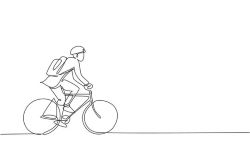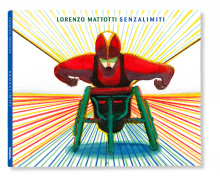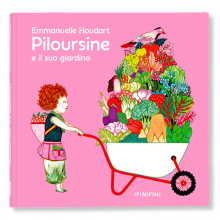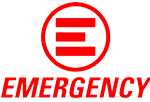Tutti i filmati di Mostra
Totale: 25
Europe's forgotten citizens - Defending Roma rights in the European Union
There are between ten and twelve million Roma living in the European Union today– roughly equal to the populationof a medium-sized EU Member State, like Belgium or Greece.
Yet despite the fact that the Roma have played an integral part in European history and culture for over seven centuries, most of us still know very little about them. And what we think we do know is more often than not based on ignorance, prejudice and stereotypes.
This has led to a situation where millions of Roma in the EU today face extreme levels of social deprivation.
Unemployment in ... continua
Yet despite the fact that the Roma have played an integral part in European history and culture for over seven centuries, most of us still know very little about them. And what we think we do know is more often than not based on ignorance, prejudice and stereotypes.
This has led to a situation where millions of Roma in the EU today face extreme levels of social deprivation.
Unemployment in ... continua
- Visualizzazioni: 2836
- Lingua:
 | Sottotitoli:
| Sottotitoli: 
- Fonte: Mostra | Durata: 08,58 min | Pubblicato il: 11-08-2008
-

- Categoria: Informaciones
- Tag: Mostra Communication
- Scarica: MP3 | MP4 | alta risoluzione
- Condividi Commenta
Healthy Workplaces. Good for you. Good for business
Each year in the European Union, 167,000 deaths are attributable to work-related accidents or illnesses, and the number of occupational accidents which result in over three days off work is estimated at 7 million.
Small and medium businesses feature prominently here, as they alone represent 82% of the total number of occupational accidents and 90% of the total number of fatal accidents. The construction, farming, transportation and health industries are among the sectors most affected.
Apart from the sometimes tragic individual consequences, the loss of earnings to ... continua
Small and medium businesses feature prominently here, as they alone represent 82% of the total number of occupational accidents and 90% of the total number of fatal accidents. The construction, farming, transportation and health industries are among the sectors most affected.
Apart from the sometimes tragic individual consequences, the loss of earnings to ... continua
- Visualizzazioni: 2779
- Lingua:
 | Sottotitoli:
| Sottotitoli: 
- Fonte: Mostra | Durata: 10.30 min | Pubblicato il: 11-07-2008
-

- Categoria: Informaciones
- Tag: Mostra Communication
- Scarica: MP3 | MP4 | alta risoluzione
- Condividi Commenta
Better information for better eating habits
The rules that govern nutrition labelling have already been in force for over a decade. In general nutrition labelling is included on a voluntary basis so the inclusion on most products depends on the goodwill of the agri-and-food industry. When nutrition labelling can be found, it may be difficult to find since it can be in small or very small print. Moreover, the type of labelling varies from one product to the next and from one country to the other. As a result, when filling their shopping carts, few European consumers take the time to ... continua
- Visualizzazioni: 2771
- Lingua:
 | Sottotitoli:
| Sottotitoli: 
- Fonte: Mostra | Durata: 08.58 min | Pubblicato il: 18-02-2008
-

- Categoria: Informaciones
- Tag: Mostra Communication
- Scarica: MP3 | MP4 | alta risoluzione
- Condividi Commenta
The Europa Diary: how to be a consumer and a citizen
The content is chosen by the European Commission according to topics of interest to young people aged 15 to 18, and is then drafted by a team of professional writers. Since 2004, the Europa Diary has dealt with issues such as consumer credit, counterfeiting, e-commerce, climate change, fair trade, the dangers of tobacco and alcohol use, sexually transmitted diseases, etc.The Diary may also be partially adapted to each country. National partners of Generation Europe may, on the one hand, choose or refuse certain articles according to ... continua
- Visualizzazioni: 2756
- Lingua:
 | Sottotitoli:
| Sottotitoli: 
- Fonte: Mostra | Durata: 07.08 min | Pubblicato il: 07-03-2008
-

- Categoria: Informaciones
- Tag: Mostra Communication
- Scarica: MP3 | MP4 | alta risoluzione
- Condividi Commenta
Waging war on the pay gap
In Belgium, women working on the cash desks and stacking the shelves in Delhaize supermarkets were dismayed to find out that they were earning less than their male colleagues. Now the company is using a new analytical classification system to re-evaluate its salary structure. In Spain, a new equality law was introduced in 2007. As well as insisting on equal pay for jobs of equal value, it introduces paternity leave for the first time and also sets targets for companies to include more women in the board room. Interviews: ... continua
- Visualizzazioni: 2753
- Lingua:
 | Sottotitoli:
| Sottotitoli: 
- Fonte: Mostra | Durata: 10.48 min | Pubblicato il: 14-03-2008
-

- Categoria: Informaciones
- Tag: Mostra Communication
- Scarica: MP3 | MP4 | alta risoluzione
- Condividi Commenta
Natura 2000: man and nature go together
The existence of many of these species is today at risk. The red list of the International Union for the Conservation of Nature and Natural Resources includes over 800 animal species and 180 plant species in Europe that are slipping at various rates down the slope towards extinction. This is the case for half the species of mammals and a third of the species of reptiles, birds and fish. 79 European animals are "in serious danger of extinction", which means that it may prove impossible to maintain them in the wild within the next ten years: such is the case for the ... continua
- Visualizzazioni: 2749
- Lingua:
 | Sottotitoli:
| Sottotitoli: 
- Fonte: Mostra | Durata: 09.55 min | Pubblicato il: 25-06-2008
-

- Categoria: Informaciones
- Tag: Mostra Communication
- Scarica: MP3 | MP4 | alta risoluzione
- Condividi Commenta
Better tools for better Medicines. The Innovative Medicines Initiative (IMI)
The European Commission and the pharmaceutical industry are entering into a pan-European strategic alliance to fund research in the health sector and accelerate the discovery and development of innovative medicines. This collaboration will bring together stakeholders on all levels to share knowledge and results. The benefits for patients will be significant, as it will further contribute to removing bottlenecks in the drug development process, thus providing patients with better medicines, faster. The boost in competitiveness could also be significant as resources for ... continua
- Visualizzazioni: 2724
- Lingua:
 | Sottotitoli:
| Sottotitoli: 
- Fonte: Mostra | Durata: 08,33 min | Pubblicato il: 14-07-2008
-

- Categoria: Informaciones
- Tag: Mostra Communication
- Scarica: MP3 | MP4 | alta risoluzione
- Condividi Commenta
Health insurance card: access to health care across Europe
As a general rule, health insurance administrations are obliged to issue a European health insurance card at their members’ request. The card makes it easier to obtain medical care and guarantees that it will be provided in accordance with the legislation of the Member State being visited. For example, if you are in a Member Statewhere medical care is free, you too have the right to free medical treatment. So the message is crystal clear: do not travel to another Member State of the European Economic Area without your European health insurance card. Interviews: ... continua
- Visualizzazioni: 2707
- Lingua:
 | Sottotitoli:
| Sottotitoli: 
- Fonte: Mostra | Durata: 07,25 min | Pubblicato il: 15-07-2008
-

- Categoria: Informaciones
- Tag: Mostra Communication
- Scarica: MP3 | MP4 | alta risoluzione
- Condividi Commenta
Water is Life
The projects are located in and around Kitui and Makueni, two hour's outside Nairobi. The VNR "Water is life" profiles projects managed by two NGOs, AMREF and the German Red Cross, whose innovative technical approach to increasing access to safe water and hygienic sanitation facilities in rural Kenya is a crucial part of the EU's response to the perennial challenge of bringing water to those most in need. To illustrate this, the report shows exactly how, in contrast to previous initiatives, the local community is actively engaged in taking ownership of different water ... continua
- Visualizzazioni: 2676
- Lingua:

- Fonte: Mostra | Durata: 11,51 min | Pubblicato il: 11-2007
-

- Categoria: Informaciones
- Tag: Mostra Communication
- Scarica: MP3 | MP4 | alta risoluzione
- Condividi Commenta
Enhancing participation to Clean Development Mechanism
The fight against climate change has been organised in such a way that it offers developing countries opportunities for economic and social development.
With their signature of the Kyoto Protocol, most industrialised countries have agreed to limit their CO2 emissions through a quota system.
If need be, however, they may make use of a mechanism that allows them to buy additional emission rights on international markets from developing or emerging economies, which have no limits on their emission levels.
If developing or emerging countries ... continua
With their signature of the Kyoto Protocol, most industrialised countries have agreed to limit their CO2 emissions through a quota system.
If need be, however, they may make use of a mechanism that allows them to buy additional emission rights on international markets from developing or emerging economies, which have no limits on their emission levels.
If developing or emerging countries ... continua
- Visualizzazioni: 2630
- Lingua:
 | Sottotitoli:
| Sottotitoli: 
- Fonte: Mostra | Durata: 08,06 min | Pubblicato il: 03-12-2007
-

- Categoria: Informaciones
- Tag: Mostra Communication
- Scarica: MP3 | MP4 | alta risoluzione
- Condividi Commenta





























